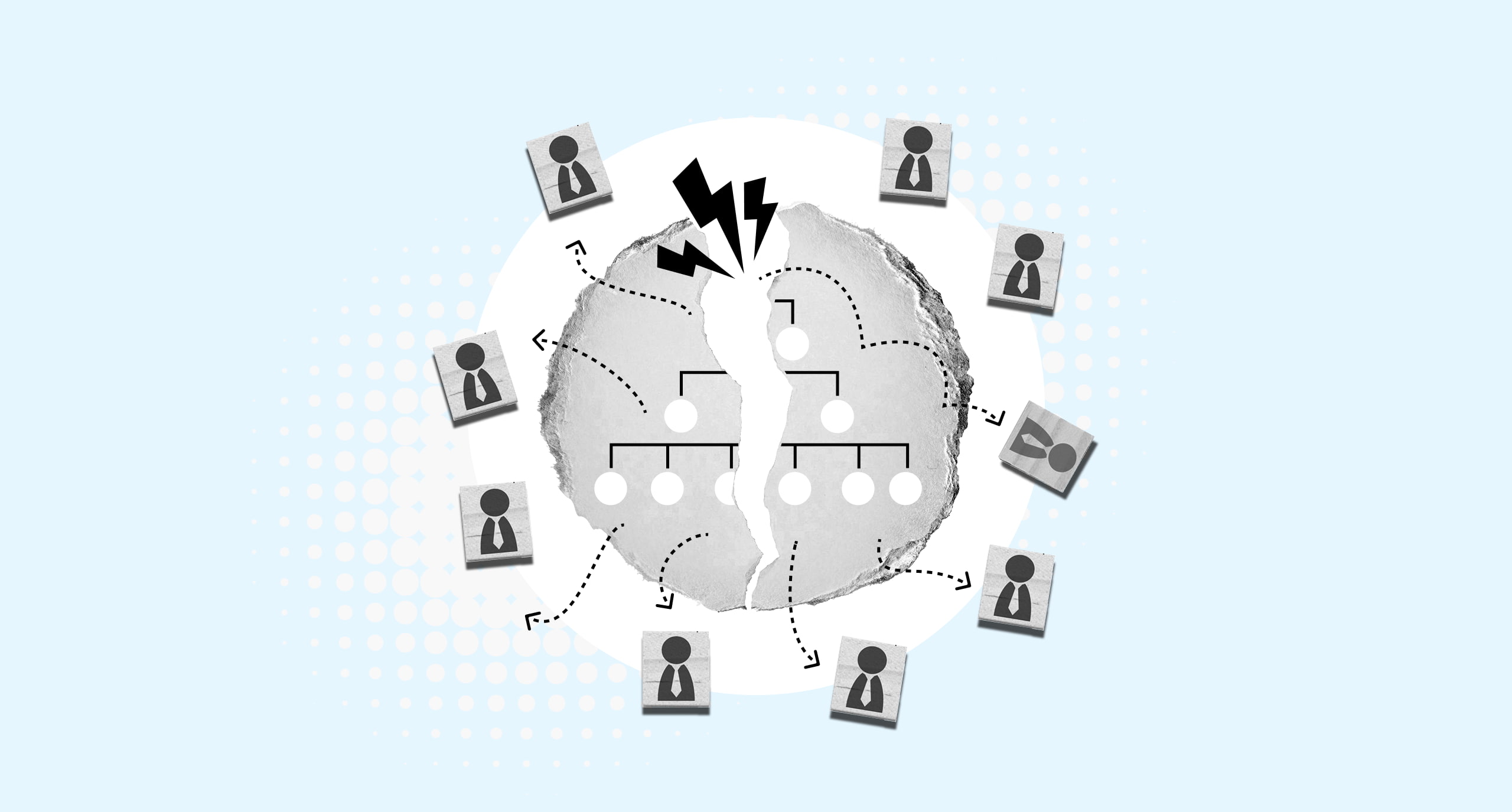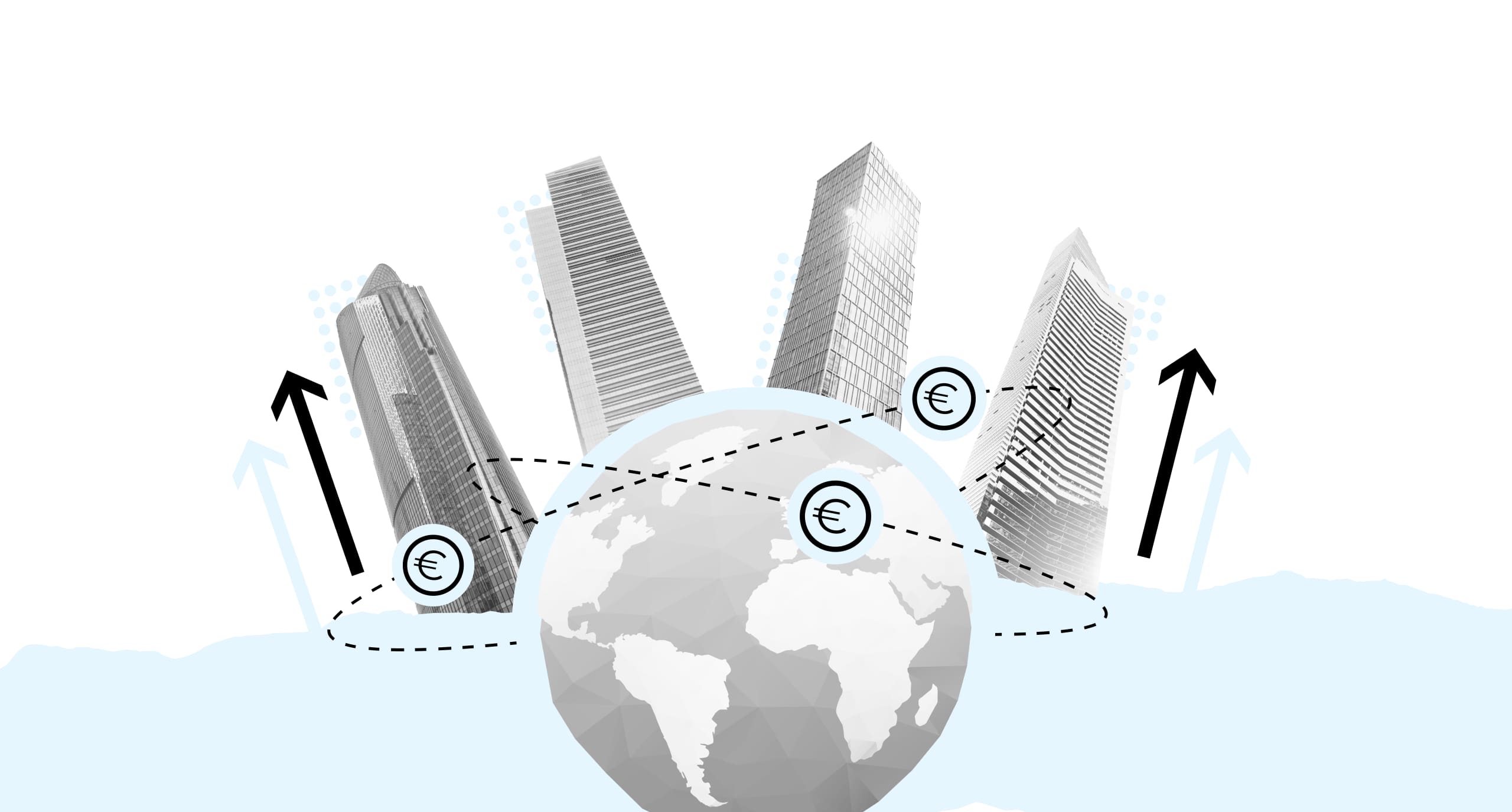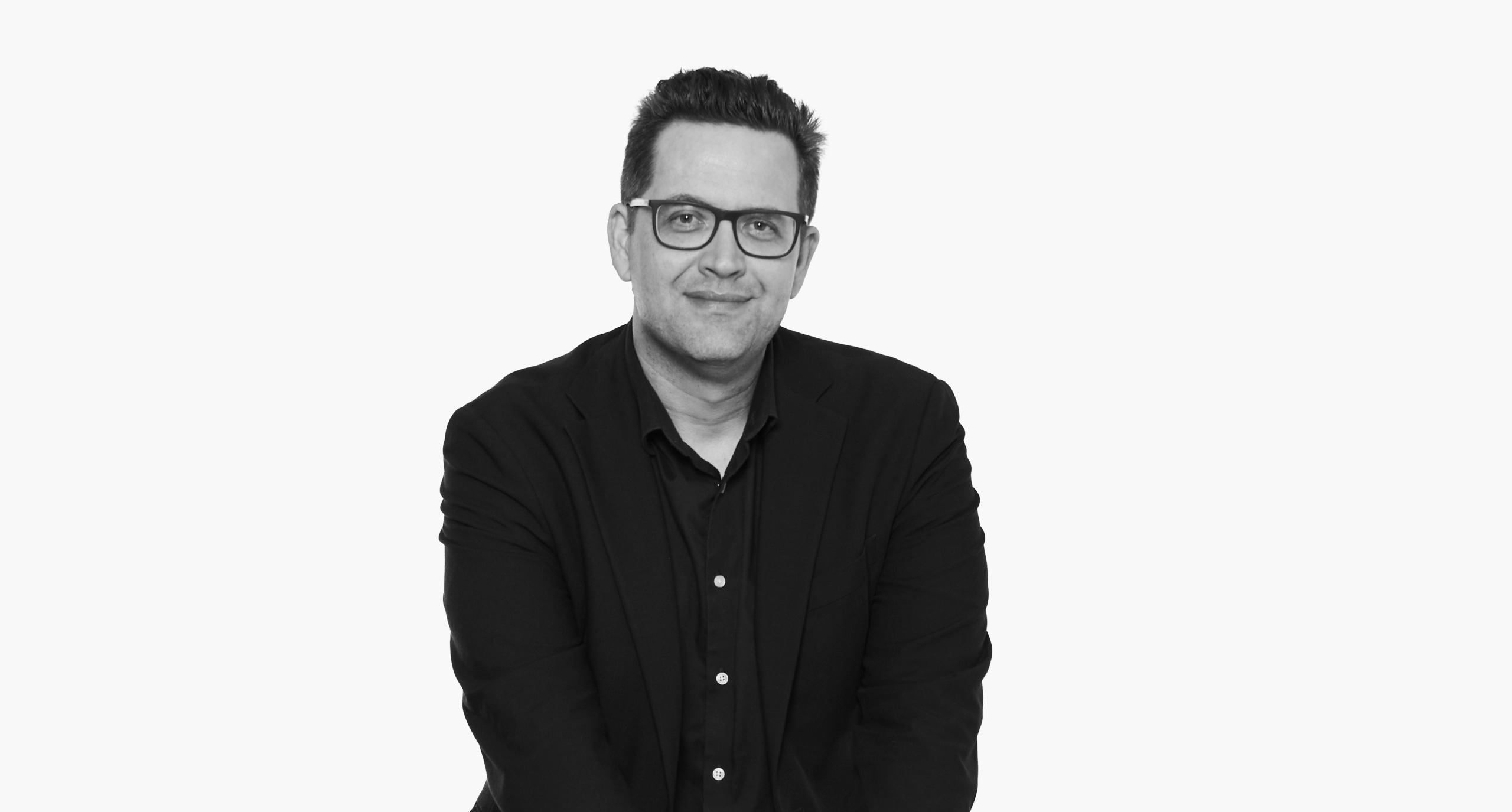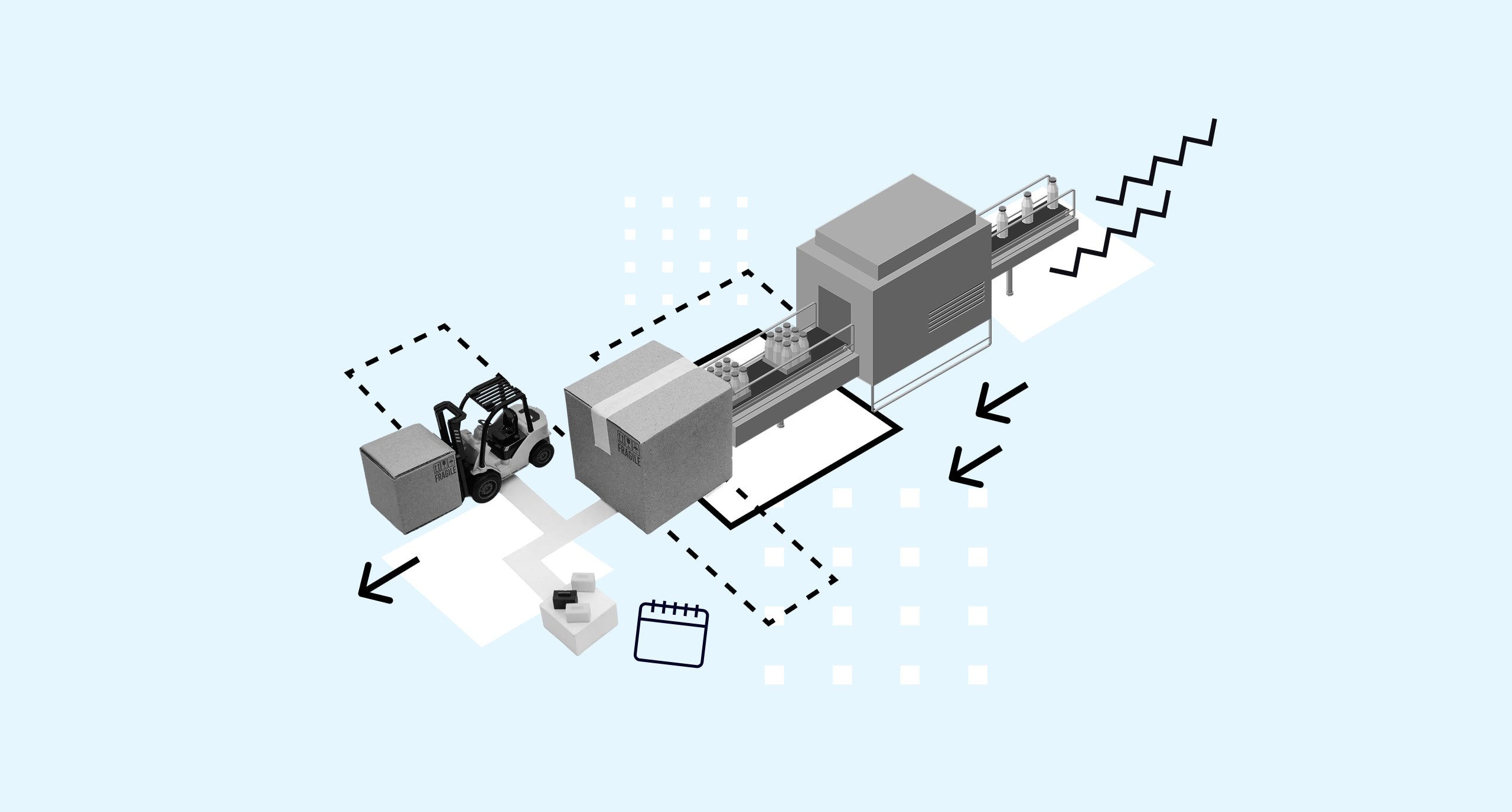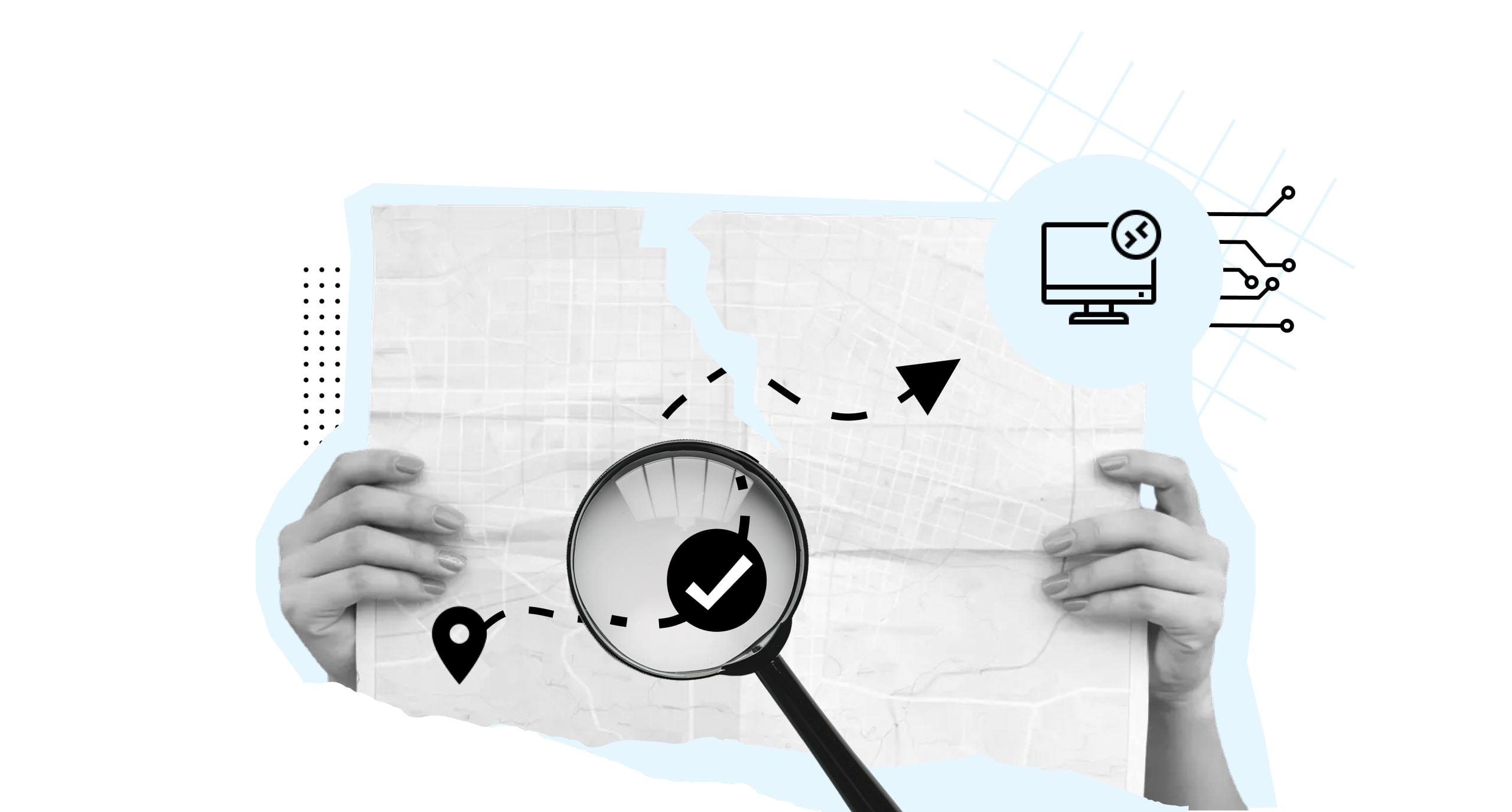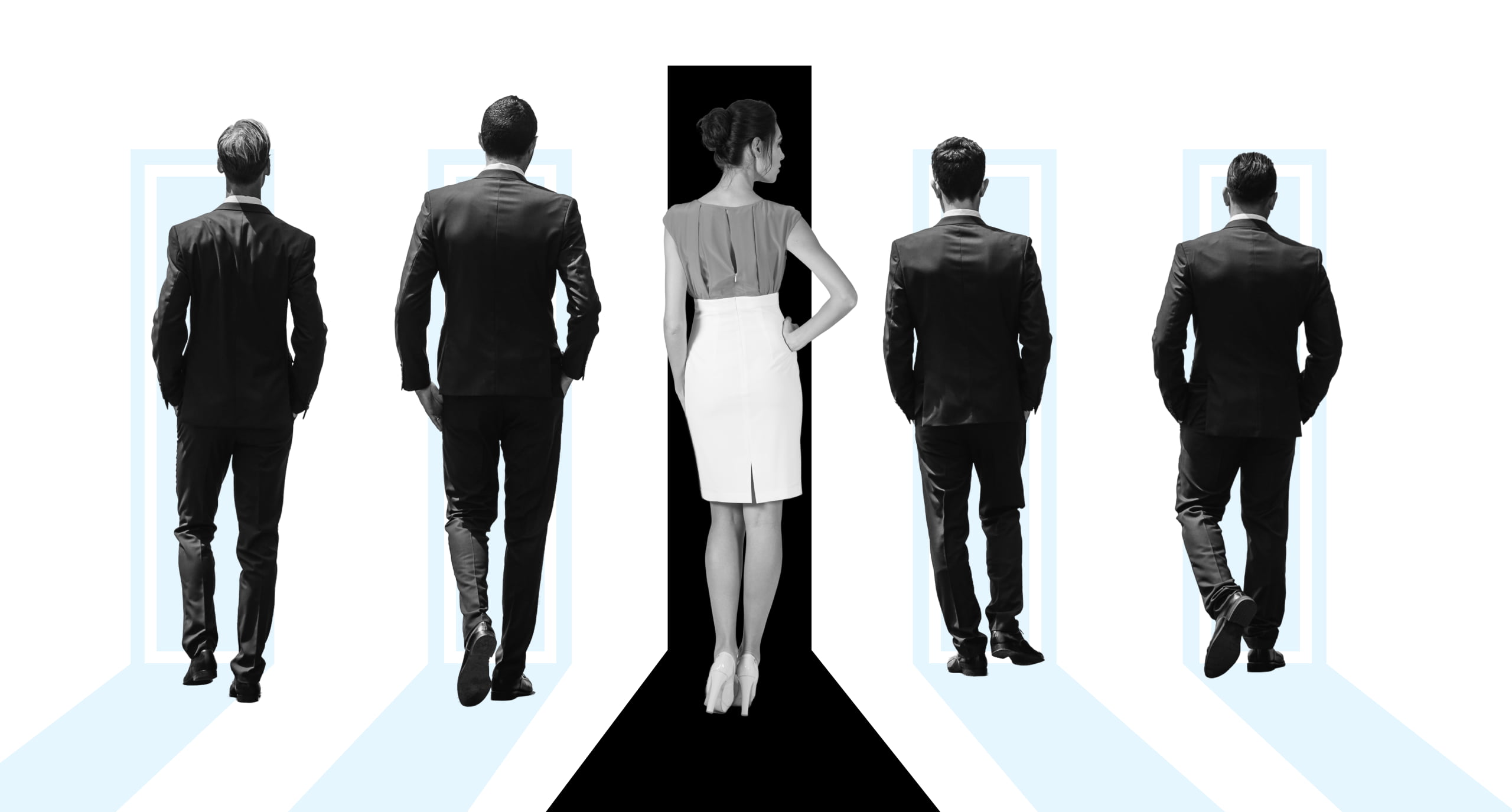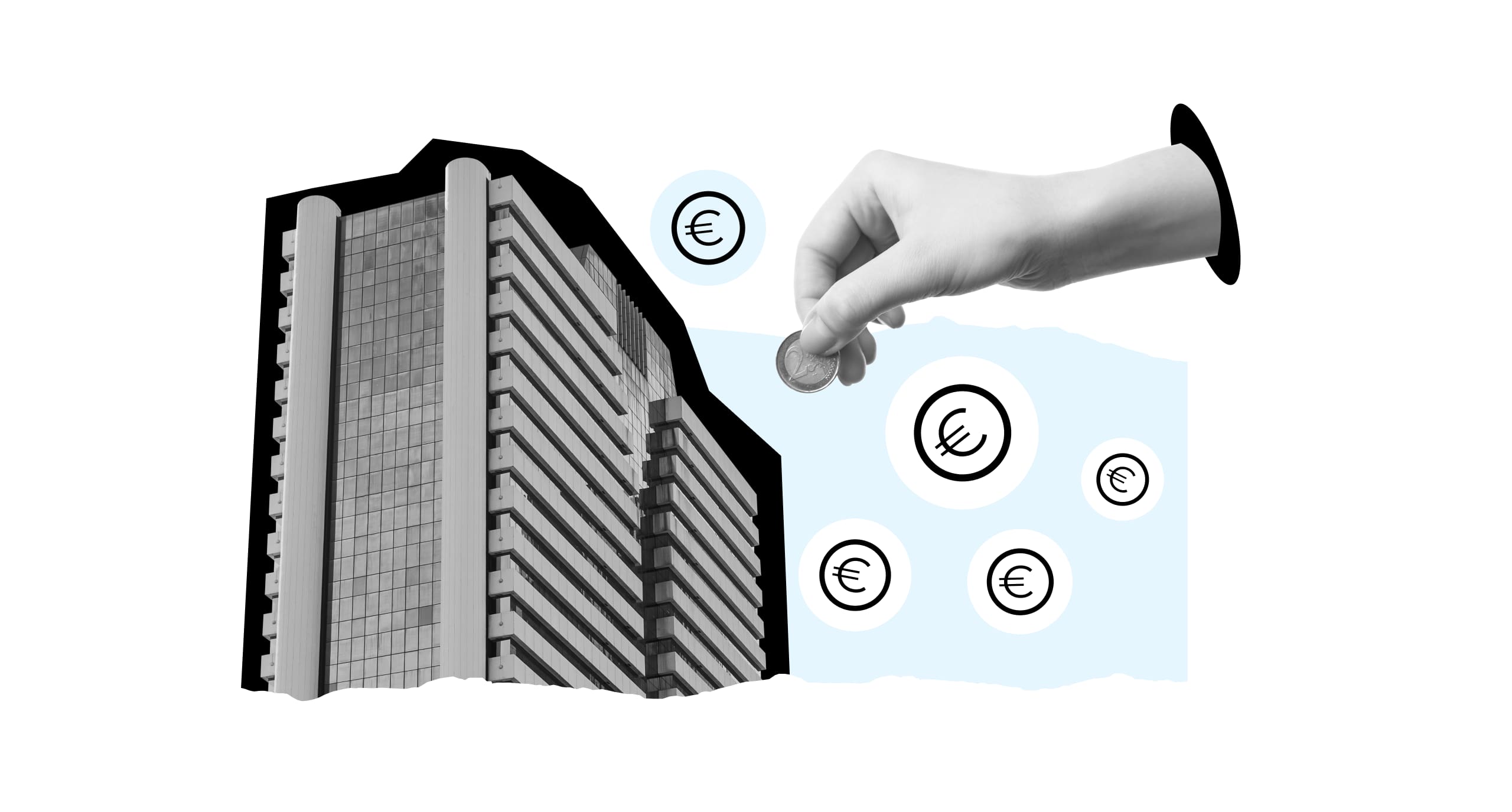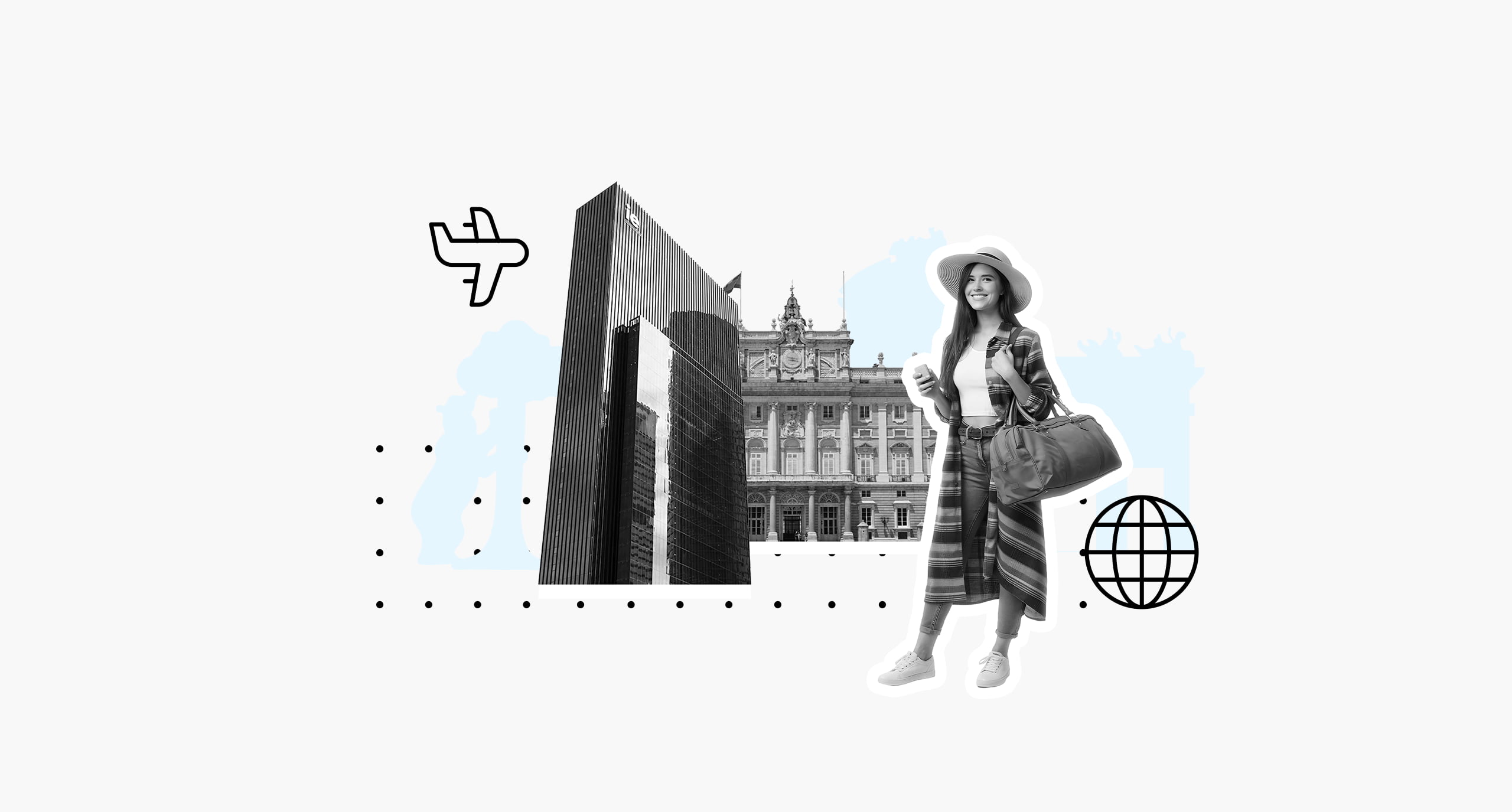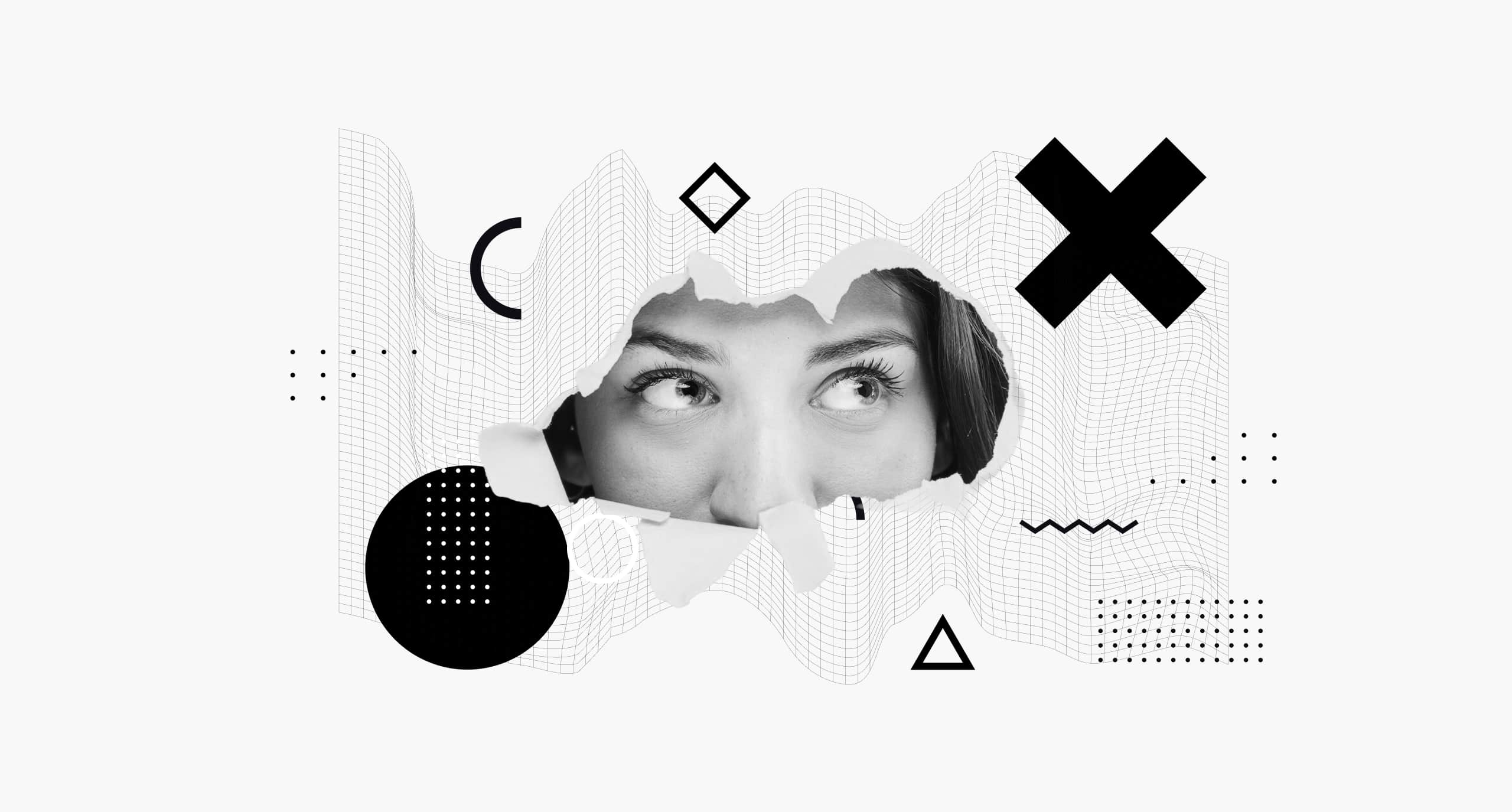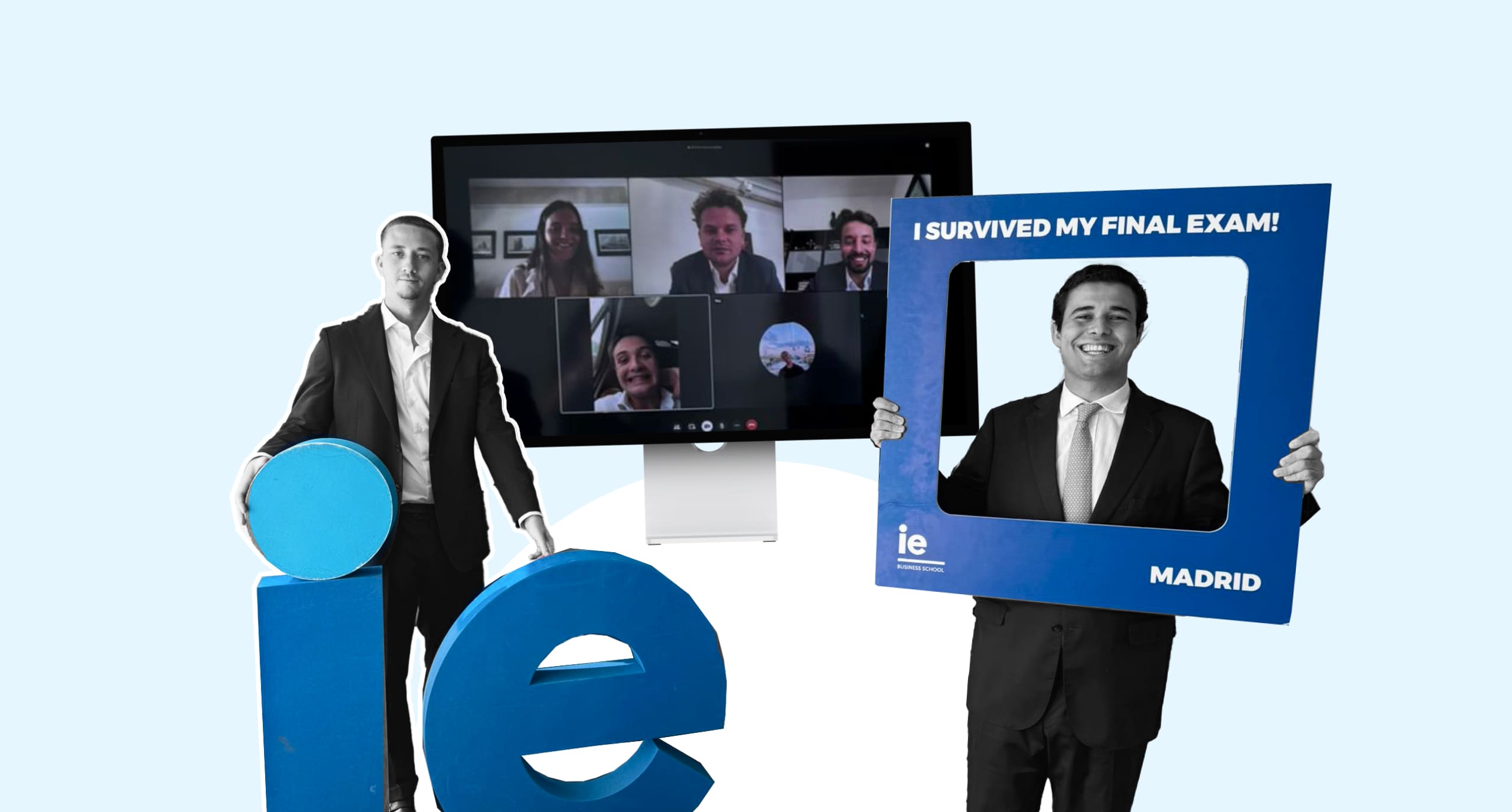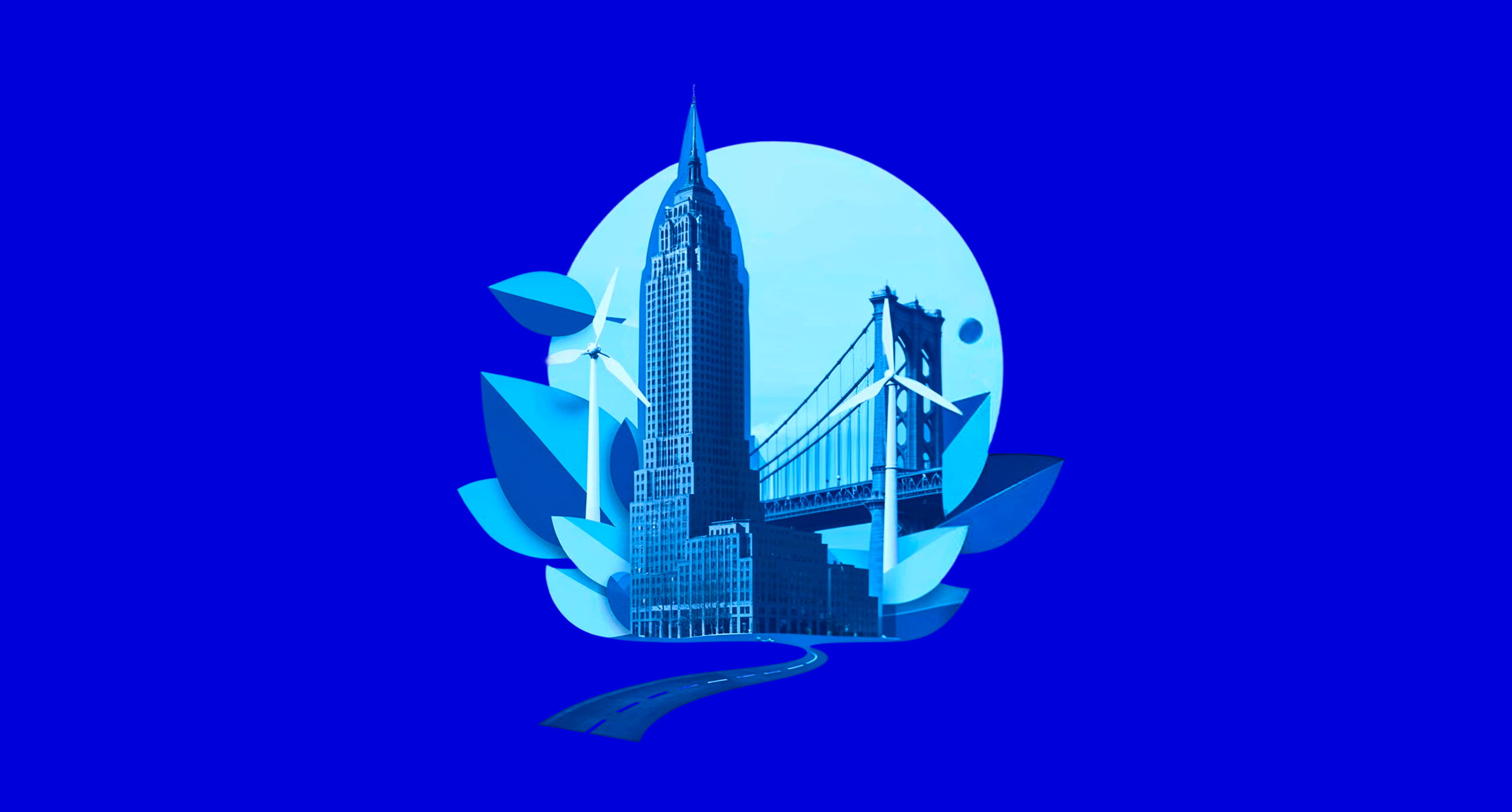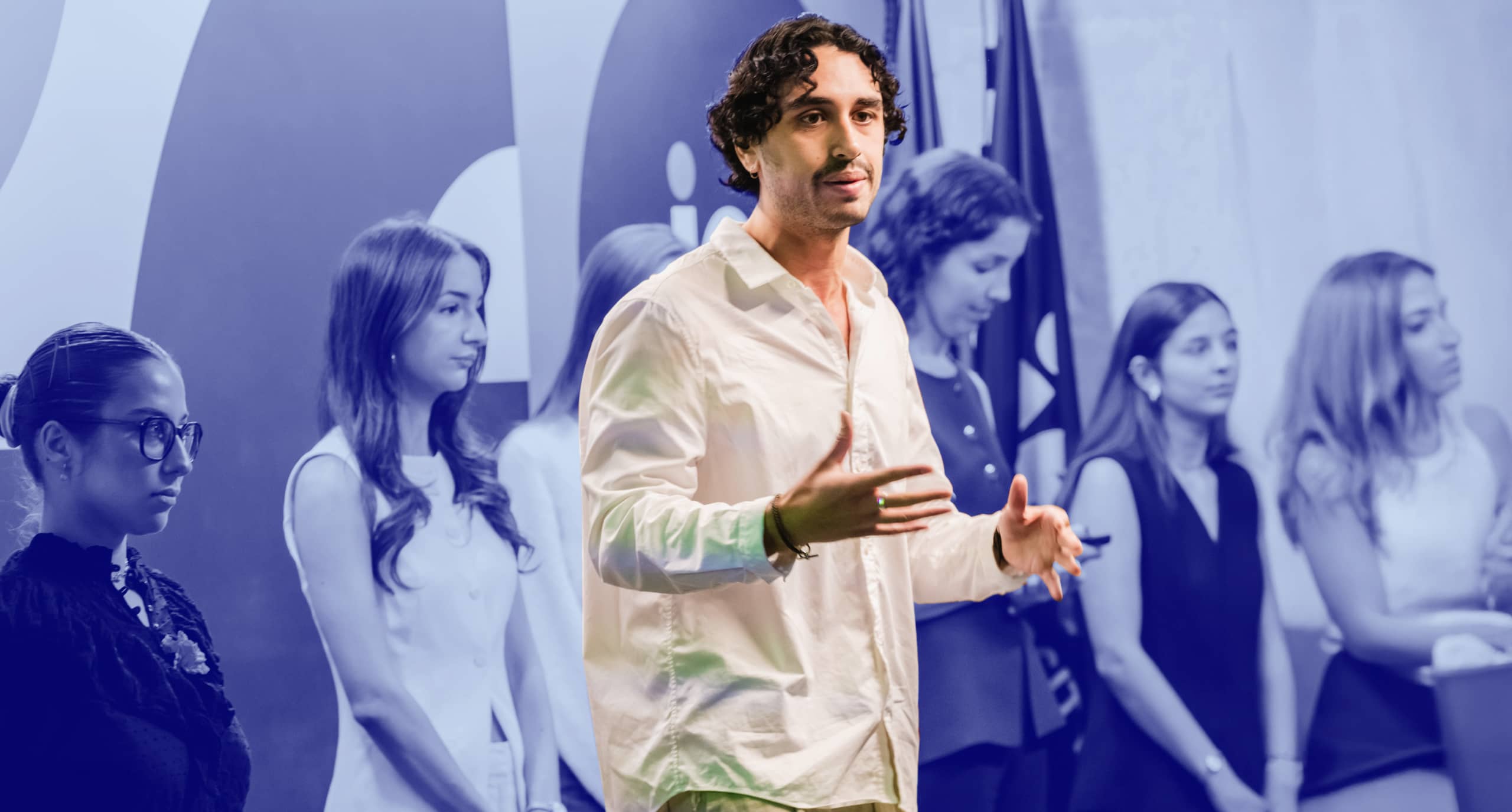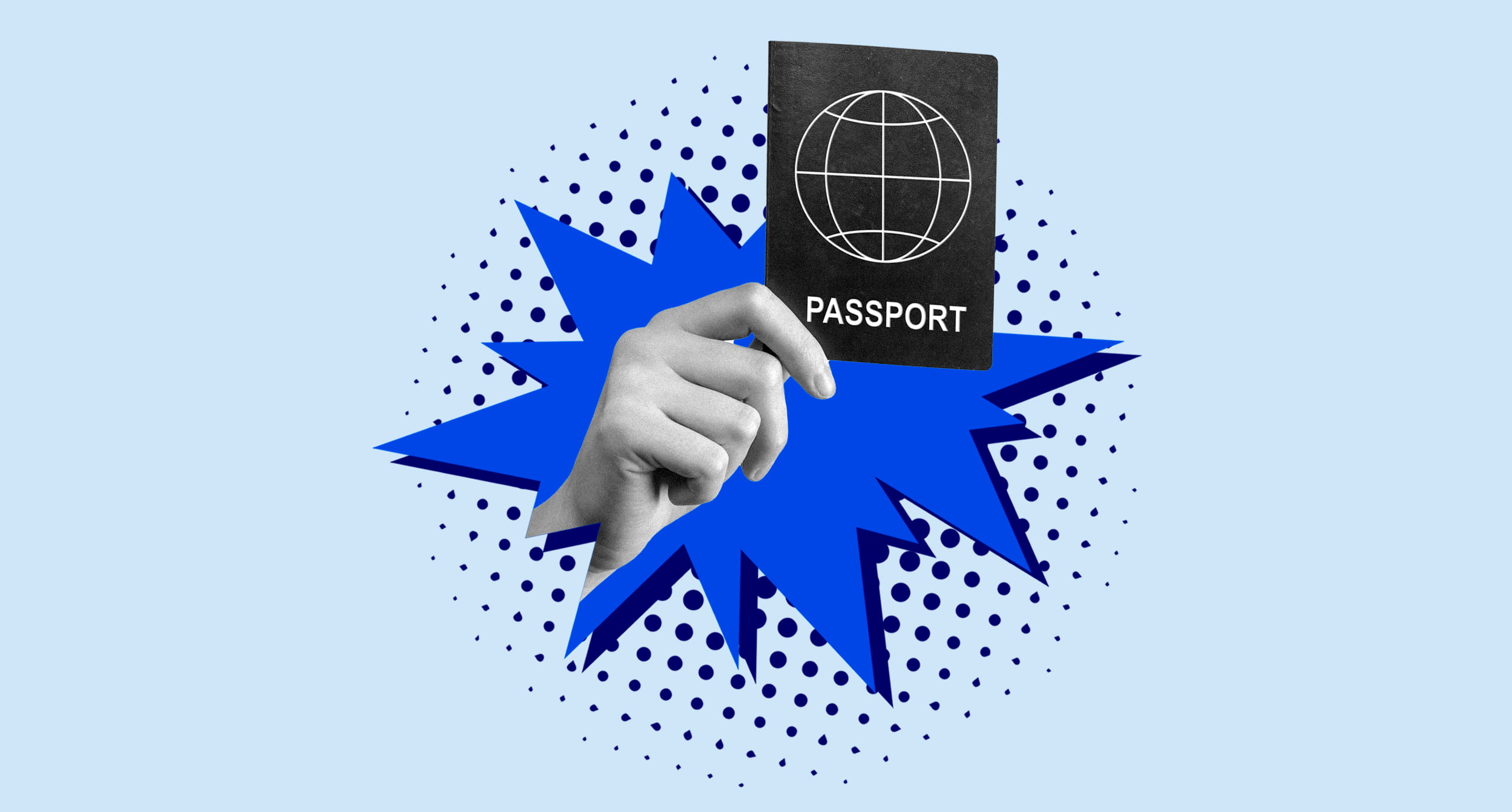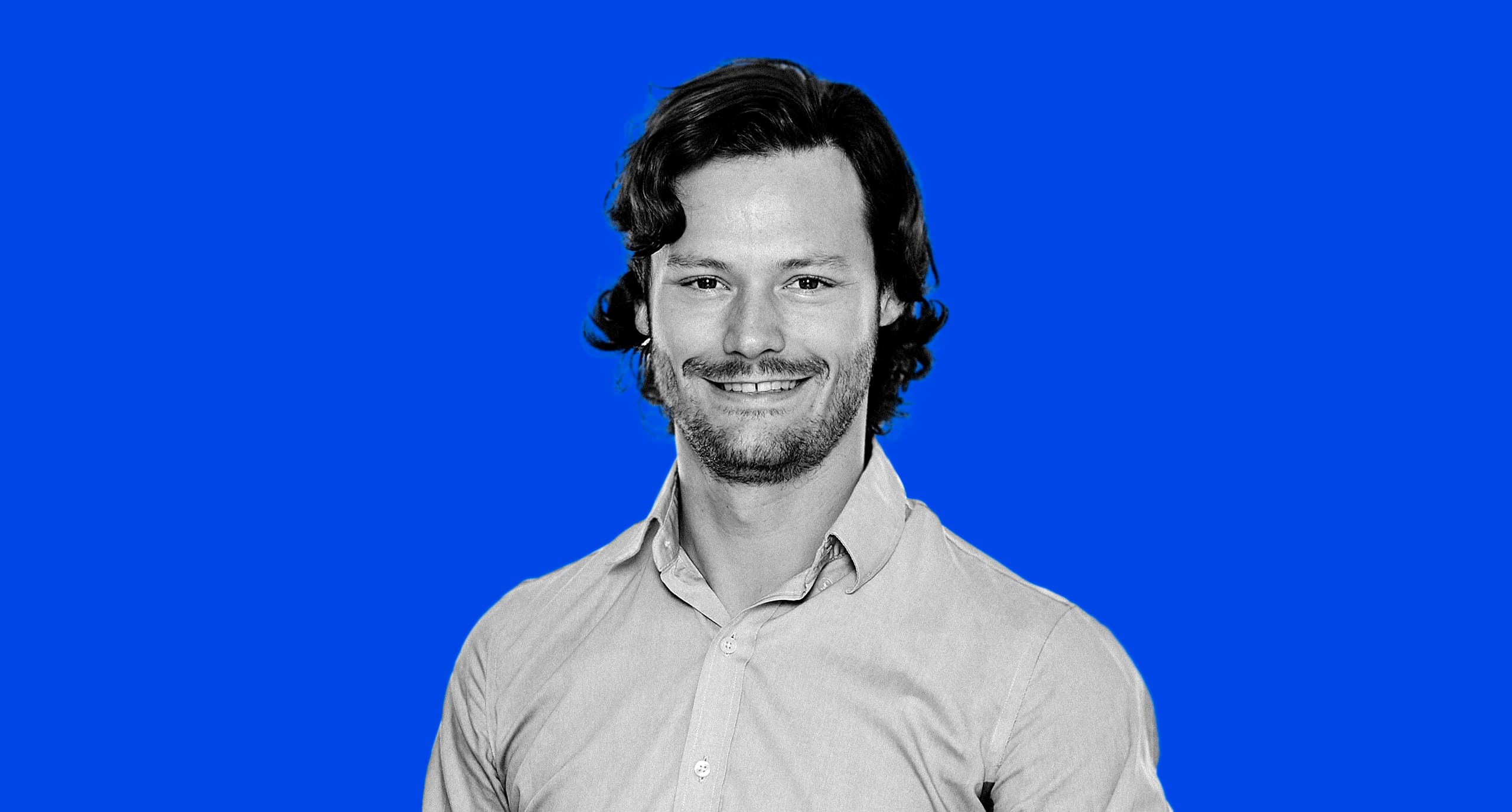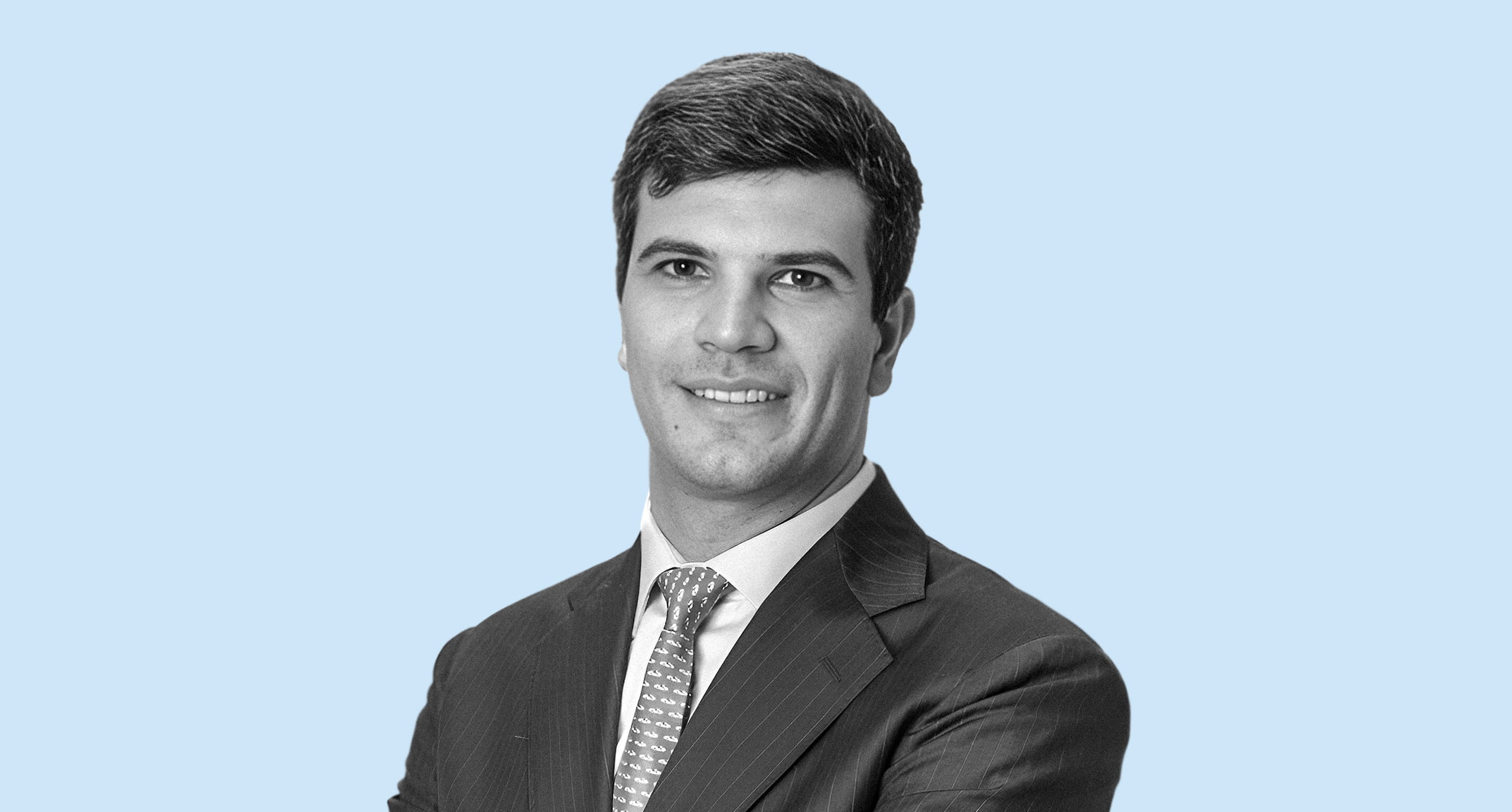Geoffroy Gérard and I sit on a sunny campus lawn in Segovia. It’s Friday on Hay Festival weekend. The festival is an entire continent of informational content squeezed across four days—it’s brilliant and overstimulating, but somehow all holds together. By this point, I’ve been pinballed through debates on AI, European politics, and poetry recitals. Now, five espressos deep, I’m damp at the joints and visibly worn.
Geoffroy, however, looks immaculate. “It’s all about taking that spirit of conversation from Hay-on-Wye to Spain,” he says. “The festival was actually brought to Segovia in 2006 by a group of passionate culture lovers, like Sheila Cremaschi. IE and myself got involved in 2009. It’s since grown to be a highly fruitful collaboration of many institutions, all of which have sustained a great festival making hundreds of conversations happen every year.”
Twenty years on, it’s still going. And I’m trying to connect the dots.
What is Europe’s issue with misinformation?
Rewind six hours.
The day begins in one of the campus’s many vaulted halls. We, the uninformed mass, are here for historian Jona Lendering and William A. J. Bok’s talk on misinformation in Europe. It opens with a frank statement from Lendering: “fake news” is no modern invention. Propaganda, he argues, has been shaping Europe’s identity for millennia. “Information spreads faster than understanding,” he says. “And when people are overwhelmed, they cling to the simplest version of reality.”
As to whether we’ll ever reach a “post-truth” equilibrium, he offers little comfort: “If you convince people that nothing can be trusted, you win without lying. That’s the genius of modern propaganda—it breeds apathy.”
Bok agrees. “The crisis of truth is cultural, not just technological. It’s not about facts anymore—it’s about belonging. Misinformation becomes identity. We need citizens who feel that truth matters to them personally… Festivals like this remind us that thinking together is still possible. Truth isn’t fragile—it’s just neglected.”
How well do we really know Europe? How well do we really know ourselves? “The antidote is curiosity,” says Lendering.
The talk ends. Curiously, we move to the next.
How do we imagine the future with creativity?
What’s it all about, then? I drift from one hall to another, primed for new perspectives. And there are many.
First comes a panel on international poetry featuring Somali-British poet Momtaza Mehri and Spain’s own Violeta Gil. They speak about poetry as witness and reckoning—how verse holds what history forgets, how diaspora turns absence into evidence.
“Diaspora,” Mehri says, “is witnessing a murder without getting blood on your shirt.”
“Writing isn’t about clarity,” says Gil. “It’s about learning to live with what can’t be explained.”
We are treated to intermittent readings from the poets’ anthologies. Mehri’s quiet, finely wrought pieces receive polite ripples of claps. Gil’s cascade of Spanish free verse almost elicits a standing ovation. It is honest patriotism. Mehri looks bewildered.
But there’s no time to find the cohesion. The poets are swept off to sign books while, a few rooms away, a talk begins on AI and creativity. The panel includes a philosopher, a novelist and a spokesperson from the Ministry of Culture whose degrees and titles are read at the introduction. We didn’t catch the debate—by the time they’re onstage, they all agree: AI bad, people good. Everyone in the room agrees. Those who don’t are in a different room.
And it makes me angry—it’s silly. I don’t know why. I take the microphone in the Q&A and make a post-structuralist protest based on Roland Barthes, who I mix up with Michel Foucault, but it’s OK because nobody notices. There is a moment of confusion, curtailed by the moderator citing the whole thing as a misunderstanding. He says it’s just anglospheric technophilia—nothing to see here. The microphone is wrested from my clammy grip.
Then there is a short lull before the headline act.
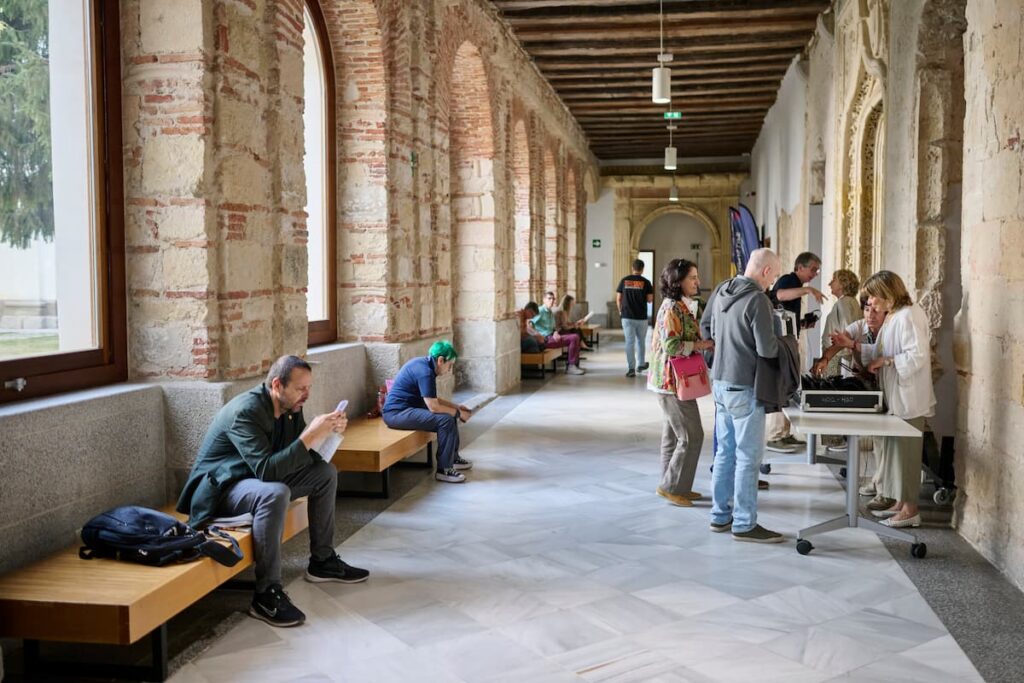
The day has been building toward a talk with Sir Nicholas Clegg in the Aula Magna. Incidentally, I have direct orders from the Social Media team to send quotes from Sir Nick before he goes on stage. I’d been hoping to interview all the speakers, actually. I’ve spent the last seven days spamming a thread of concierges and assistants.
Hoping for a few soundbites from Momtaza Mehri, I drift to the campus bookshop. The writers have already been and gone. Another message arrives from the Social Media team. I say I’ve tried, that nobody’s responding, that I’m going for lunch, that we may need to pivot, that honestly, no, honestly, I have to go for lunch.
And that’s when I see Geoffroy Gérard at the campus bar. He’s buying a bottle of sparkling water. I rush over and tell him I’m the one from the email thread. His eyes widen. Does he have 10 minutes, I ask?
He gives me 20.
We sit on the lawn in the nearly-evening sun. Everything is running on time. I know this because I check the time constantly. We both do. Everyone does. “It’s all about taking that spirit of conversation from Hay-on-Wye to Spain,” Geoffroy says. “The festival was actually brought to Segovia in 2006 by a group of passionate culture lovers, like Sheila Cremaschi…”
Why is Europe afraid of innovation?
Finally, the auditorium fills for the main event. Enrico Letta, former Prime Minister of Italy and now Dean of IE School of Politics, Economics & Global Affairs, takes the stage alongside Sir Nicholas Clegg, former Deputy Prime Minister of the United Kingdom and now Vice President of Global Affairs at Meta. It’s a compelling double act: Silicon Valley pragmatism meets European idealism.
Clegg opens: Europe must find a way to match technological progress with political will. “Europe has always been very good at regulation,” he says, “but less good at innovation.” As artificial intelligence accelerates global change, he argues, the question is not whether technology will advance but whether institutions can adapt. “If we only ever respond to disruption by building fences,” he warns, “we’ll wake up one day to find the world has moved on without us.”
Letta follows, placing the issue in the broader context of European democracy.
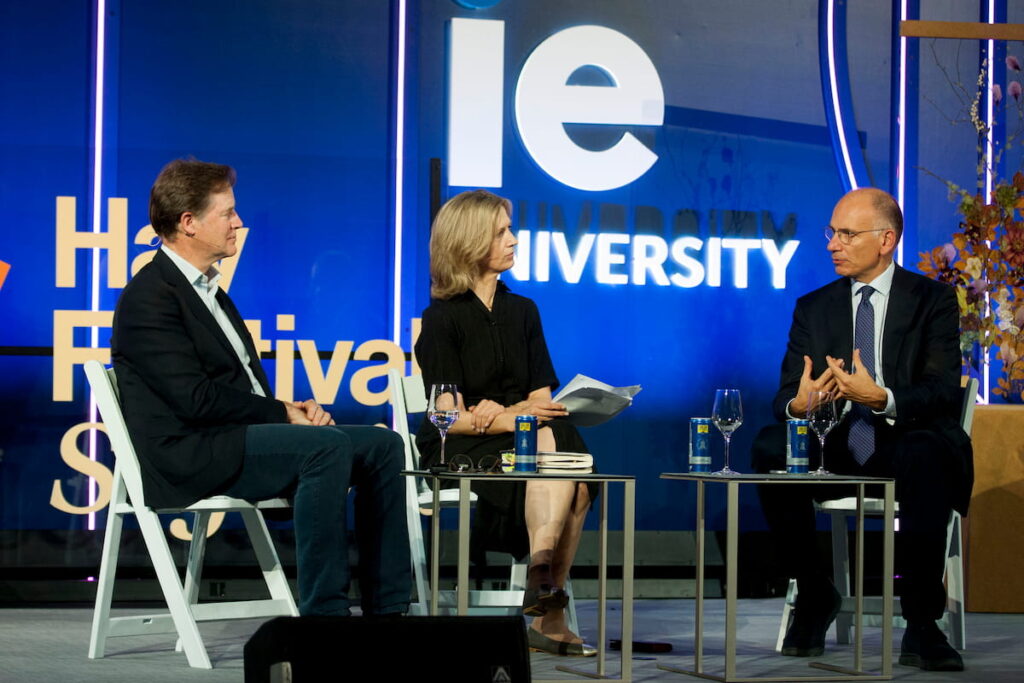
“Democracy is slower than the market, slower than technology,” he says, “but that is its beauty—and its weakness.” For Letta, the future of Europe depends on its capacity to balance openness with autonomy. “The European Union was built on solidarity,” he notes, “but we now need a new kind of solidarity—digital, technological, and strategic.” After all, questions of sovereignty have shifted: “If data is the new currency, then who controls the vault?”
Both agree that the next frontier of politics will be digital, and that Europe’s advantage lies in setting ethical standards for technology. Clegg calls it a matter of global leadership: “We have a chance to prove that freedom and technology aren’t opposites.” Letta adds that Europe’s democratic model will only survive if citizens trust how technology is governed. “If Europe cannot build trust in the digital age,” he concludes, “it will lose not just influence, but purpose.”
I don’t see the end. My phone buzzes with a WhatsApp: Jona Lendering and William A. J. Bok are free for an interview. I sweep up my things and head for the back door. The Social Media team pings again: Any luck?
I reply with a photo of the back of someone’s head. On it.
What does a European identity crisis mean?
Jan, Jona, and I crowd around a table in an empty classroom. I hit record. Jona takes a long breath. “European politics,” he begins, “is a story about memory.” Jan jumps in. “But memory isn’t static—it’s constructed. Europe exists because we agree on certain myths about ourselves.”
“Every generation rewrites its own version of Europe,” Jona says, “each one convinced it’s the most enlightened—and that belief is the most European kind of chauvinism there is.”
For the next half hour, they ricochet between the Enlightenment, social media, and the Treaty of Rome.“Misinformation today is just the digital form of what empires used to do with marble and maps.” Every European identity crisis—from the Reformation to Brexit—is really about who controls the story.
Jona rubs his eyes. “We keep saying ‘the European project,” he says, “But it’s never finished. It’s a verb, not a noun.”
Jan nods. “Europe’s crises—migration, climate, disinformation—aren’t just political; they’re existential. Europe is still the best place to think aloud. We argue, we doubt, we disagree—and that’s our strength.”
Outside, the light goes.
How do we cross the divide?
The final session of the day is about architecture. Dean David Goodman and Fernanda Canales speak about her work in Mexico.
“Every building is an argument with time,” says Canales. “You can’t design without acknowledging what stood there before you—even if what you’re building is meant to challenge it.”
They move through sustainability and culture. “The word ‘sustainable’ has been emptied of meaning,” she says. “It’s not a label—it’s a process. You can’t just certify conscience.” Goodman agrees: “We have to stop designing objects and start designing ecosystems. A building should generate public life, not just occupy space.”
“In one of our projects,” says Canales. “We built a tower so that people from one neighborhood could see across to another. It wasn’t about height or skyline. It was about visibility—about allowing people to recognize each other again. Sometimes connection is the most powerful design principle. When you change what people can see, you change what they believe is possible.”
And then the day is done.
On the bus back to the train station, medieval arches and brickwork flash by. They are the Roman stones, Renaissance façades and modern glass held together by the care that we’d just touched upon. Then it disconnects; urban Segovia recedes into the Castilian plains. And then I am in the train station, waiting for my ride back to the capital. The concourse fills with many dipped heads, each shuffling torward their next journey. I drop my bag and peer out towards where the tracks converge in the distance.
Learn more about European politics with the Master in International Relations
Be a part of the conversation with IE School of Politics, Economics & Global Affairs.

Benjamin is the editor of Uncover IE. His writing is featured in the LAMDA Verse and Prose Anthology Vol. 19, The Primer and Moonflake Press. Benjamin provided translation for “FalseStuff: La Muerte de las Musas”, winner of Best Theatre Show at the Max Awards 2024.
Benjamin was shortlisted for the Bristol Old Vic Open Sessions 2016 and the Alpine Fellowship Writing Prize 2023.


